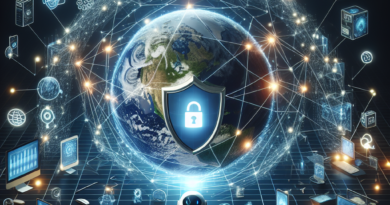How ProtonVPN Uses Swiss Privacy Laws to Protect You

How ProtonVPN Uses Swiss Privacy Laws to Protect You
ProtonVPN uses Swiss privacy laws as a powerful foundation to safeguard your online activity, going far beyond the basic promise of an encrypted connection. In the digital age, where threats to privacy and surveillance have become major concerns, choosing a VPN backed by robust legal frameworks can be just as important as technical features. This article explores how ProtonVPN leverages Switzerland’s renowned data protection laws to offer users an exceptional level of privacy, and why it matters for anyone seeking online security.
—
Switzerland: A Safe Haven for Privacy
Switzerland has established itself as a global leader in data privacy, thanks to strict laws and a firm commitment to personal freedom. Unlike other countries where governments may demand user logs and data, Swiss law offers ironclad protections against external influence – including requests from foreign intelligence agencies.
Switzerland is not a member of the European Union or the “Five Eyes” intelligence-sharing alliance (which includes the US, UK, Canada, Australia, and New Zealand). This independence allows Swiss-based companies like ProtonVPN to operate without the pressure of international data-sharing agreements or invasive surveillance directives frequently seen elsewhere.
—

Swiss Privacy Laws: The Backbone of ProtonVPN
Focus Keyword Subheading: How ProtonVPN Uses Swiss Privacy Laws to Protect User Data
One of the biggest reasons privacy-conscious users choose ProtonVPN is the legal shield provided by Switzerland’s data laws. Here’s how these laws translate into concrete protections:
1. No Mandatory Data Retention
Swiss law does not obligate service providers like ProtonVPN to keep logs of user activity or connection details. While some countries require companies to store this information for months or even years, Swiss providers can legally maintain a no-logs policy. For users, this means neither the Swiss government nor foreign entities can retroactively view their browsing history or track their online behavior through ProtonVPN.
2. Strict Legal Process for Data Requests
If a Swiss company receives an official request for user data, it must go through rigorous legal procedures. Only a Swiss court can compel ProtonVPN to hand over information, and even then, the company’s no-logs policy severely limits what is available. For most routine investigations or international requests, Swiss authorities typically stand firm against pressure, further ensuring user confidentiality.
3. Strong Constitutional Protections
Switzerland’s constitution enshrines the right to privacy in personal and family life – including digital activity. This foundational principle shapes every aspect of Swiss law dealing with data and surveillance, strengthening ProtonVPN’s ability to guarantee user anonymity.
—
Technical Security, Amplified by Swiss Laws
While ProtonVPN employs top-tier technical protections—such as AES-256 encryption, secure VPN protocols, and advanced security features—the legal environment multiplies these efforts. For instance, having strong encryption is only useful if the provider isn’t forced to intercept and hand over your keys or traffic.
Because ProtonVPN is headquartered in Switzerland, technical decisions can remain focused on security and privacy without compromise. If there are attempts by hackers or governments to coerce ProtonVPN into surveillance, Swiss law provides an extra layer of defense by making such intrusion difficult and legally challenging.
—
Commitment to a Transparent No-Logs Policy
One of the hallmarks of ProtonVPN is its transparent no-logs policy, made credible and enforceable by Switzerland’s legal stance. Unlike some VPN providers that claim to avoid logs but operate in countries with mandatory retention laws, ProtonVPN can realistically offer this privacy guarantee.
The company has undergone independent security audits, made its open-source apps public, and maintains a clear privacy policy. All these initiatives are empowered and legitimized by the Swiss environment in which they operate, reducing risks of hidden surveillance or data compromise.
—
International Comparison: Why Swiss Privacy Laws Stand Out
Many VPN providers are based in countries where user privacy is more of a promise than a certainty. For instance, US courts can issue National Security Letters, demanding user data in secret and forbidding providers from disclosing such requests. Similarly, EU countries, while having GDPR, still grapple with member states pushing for expanded logging.
By contrast, Swiss privacy laws:
– Forbid bulk data collection or warrantless surveillance
– Limit international information sharing without compelling Swiss national interest
– Involve independent judicial review for any search or seizure request
This rare combination of location and legislation gives ProtonVPN a tangible advantage in preserving user privacy.
—
Practical Benefits for Cybersecurity and Everyday Users
Individuals and businesses increasingly face cyber threats such as hacking, phishing, and data harvesting. Securing your internet traffic with a VPN is essential, but the true level of safety depends on what happens to your data after transmission.
ProtonVPN’s use of Swiss privacy laws ensures that:
– Your identity and activity cannot be easily traced, even in the face of international requests.
– Data breaches are less likely, as minimal personal data is stored on company servers.
– Anonymity is protected by law, not just by technology.
Whether you’re bypassing censorship, accessing public Wi-Fi, or simply protecting your private correspondence, these legal protections mean your shield is as strong as possible.
—
Final Thoughts: Swiss Privacy—An Edge You Can Rely On
Choosing a VPN isn’t just about speed or the number of servers. The legal jurisdiction from which your service operates can make or break your digital privacy. ProtonVPN’s location in Switzerland, and its adherence to transparent policies and strong technical standards, offer a combination of trust and reliability that’s hard to match.
For consumers serious about cyber security and online anonymity, understanding how ProtonVPN uses Swiss privacy laws provides peace of mind that their data is truly protected—by both code and constitution.


